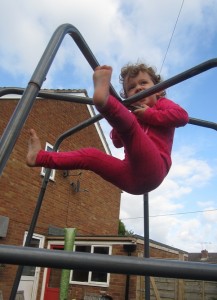When I was a young mother, I wanted with all my heart to give good answers to the questions my 7 children asked, especially their questions about God.
When they asked and I didn’t know the answer, I responded with what I thought was an answer. And if I couldn’t come up with that, I just made it up, but of course it was done with sterling intentions. Every answer was given with a desire to make God so appealing, they couldn’t help but love him.
The problem was, I wasn’t always feeding them info that had come from the Bible. An even greater travesty, though, was that by answering all their questions definitively, I was giving them the impression God could be fully understood. Despite him telling us we can’t know everything about him, I was acting as though I was the one exception to that, and had him all figured out.
Even writing that sentence makes me tremble.
Although God is never at a loss for answers, we need to admit that we can be. Take these tough questions, for example, from children:
- Will I have my same name in heaven?
- How can hell be dark if there is fire there?
- Why do people get mad if Jesus is in their hearts?
- Were there dinosaurs on the ark?
- Why does God love people?
When I was asked these kinds of things, I’d launch off with a babbling non-answer that left the kids confused and me, too. The best (and most honest) response would have been, “Honey, I wish I could answer that, but I just don’t know.”
James Dobson always said parents are a child’s first model of God. Our youngsters watch us carefully and buy into what we say and do as absolute truth. Without even realizing it, my non-answers were leading them away from him instead of toward him.
God is willing to take a chance on us when he entrusts us with children to raise, but he knows it’s a challenging job and doesn’t give them to us without offering to co-parent. When we answer our children with a straightforward I-don’t-know, I believe God will fill in whatever blank is in their minds with exactly what what they need to satisfy the question. After all, he says those who sincerely seek him will find him, and no questioner is more sincere than a child.
Surely God is pleased when we honestly speak an I-don’t-know, because that represents a “yes” to his mysterious divinity. What seems like an inadequate answer can be an arrow that simultaneously points to our limitations and his limitlessness. In other words, answering a question with I-don’t-know can actually be lifting God high, a quiet acknowledgement of his complicated, unexplainable supremacy.
And when I see it that way, an I-don’t-know turns out to be a pretty good answer.
“Oh, how great are God’s riches and wisdom and knowledge! How impossible it is for us to understand… his ways!” (Romans 11:33)







